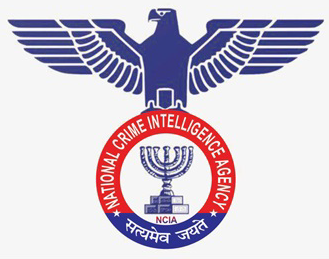NGO/TRUST REGISTRATION
Incorporation & Registration, NGO Registration, Company Compliances, Corporate Contract Drafting, Manage Finance & Accounting, Taxation, Government Mandatory Registration
3000 +
Happy clients
300 +
Advocate, CA, CS
10 +
Associates Offices
Request A Call Back
TRUST (PRIVATE TRUST/PUBLIC TRUST) REGISTRATION
- Public Charitable Trust
The principle that, certain natural and cultural resources are preserved for public use, and that the government owns and must protect and maintain these resources for the public’s use.For example, under this doctrine, the government holds title to all submerged land under navigable waters.
(b) Public Religious Trust
Who may Create Trust?
As a general rule, any person, who has power of disposition over a property, has capacity to create a trust over such property.
As regards, ‘power of disposition over property’, according to section 7 of the Transfer of Property Act, 1882, a person who is competent to contract and entitled to transferable property or authorized to dispose of transferable property not his own, is competent to transfer such property either wholly or in part and either absolutely or conditionally. Thus, two basic things are required for being capable of forming a trust:-
- Power of disposition over property; and
- Competence to contract.
It may be recalled that the Indian Trust Act does not apply to public trusts which can be created by any person under general law. Under the Hindu law, any Hindu can create a Hindu endowment and under the Muslim law, any Muslim can create a public WAKF but public trusts, whether endowment or wakfs, which are essentially of charitable or religious nature, can be constituted by any person without any distinction of caste or creed.Besides individuals, a body of individual, or an artificial person such as an association ofpersons, an institution, a limited company, all Hindu Undivided Family through its Karta, can also form a trust.
Requirement of creating Charitable Trust/NGO:
- Registration under State Act;
- Registration under Income Tax Act;
- Founder/Settler has to come for presentation in the registrar office.
- Mandatory position like the President, Vice-President, Secretary, Treasurer, etc.
- For national level trust registration, it is mandatory that the concerned person should have a copy utility bill of registered address.
- Aadhar card is necessary for trust formation in registered address.
- Minimum two witnesses are essential who should have Aadhar card.
- Two photographs of each of the members.
Merit of registration Charitable Trust/NGO:
- A registered Trust Deed becomes an official shape of an NGO which carries support and recognition of law.
- A conveyance/transfer/sale of trust property to the trustee under a registered deed before concern sub-registrar office is ordinarily not open to challenge.
- In the case of a charitable or religious trust, For Availing benefits under Section 11 of the Income Tax in the case of immovable property registration, it is essential that the instrument of trust is duly registered.
- A trust registered in Delhi can open several branches in all over India
Demerit of registration Trust/NGO:
- The structure of organization is complex;
- The organization can be expensive to establish and maintain;
- Complexities of loan structures;
- The powers of trustees are restricted by the trust deed.
Our services for establish your Trust /NGO:
- NGO Deed drafting
- NGO deed registration
- NGO PAN Number.
- Drafting of Trust deed.
- Preparing of registration document
- Preparation of member list
- Due diligence of title document
- Coordination with registrar
- Follow-up with registrar for registry
- Registration of Trust deed
Documents required from all members for registering Trust/NGO
- Copy of Election ID Card
- Copy of PAN Card or Passport.
- Copy of latest bank statement
- Copy of telephone or electricity bill.
- Passport-sized photograph of all partners
- Copy of Notarized Rental Agreement/ registered lease deed
- NOC from owner/landlord (if any).
Charitable Trust Registration Procedure in India: As per Indian trust Act following are the minimum requirement as a Trust in India:
- Transparency as to for what purpose it is created
- Intention to create a Trust
- Clear definition of the beneficiary
- Trust property assigned by the assignee
Once all the above required pre-requisites are met with you can proceed by following these basic steps;
- STEP 1:Choose name for your NGO
- STEP 2:Determine the settler, minimum 2 trustees and a clear definition of who will be the beneficiary.
- STEP 3:Prepare the MOA and by-laws and execute a proper trust deed containing all the key provisions and clauses.
- STEP 4:The Trust Deed must be executed on stamp paper of sufficient value based on the value of the property assigned to the Trust.
- STEP 5: Finally, the Trust Deed must be signed by all the trustees and settler and registered with the Local Registrar of the area in which registered office of the NGO is located.
















































